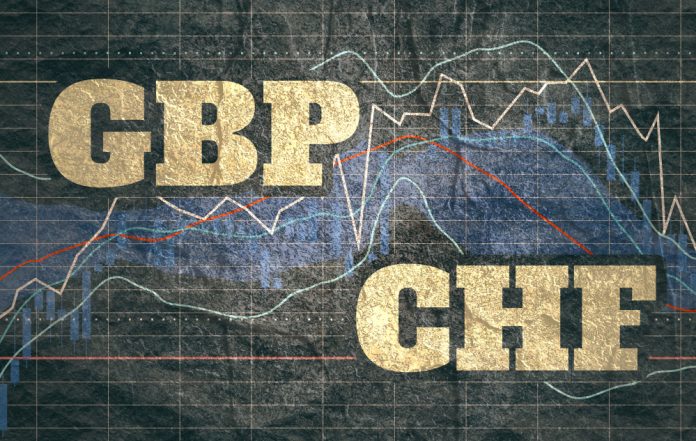The British pound is lower against the Swiss franc on Monday.
The Swiss franc has held the status as a haven throughout the virus pandemic. The franc has been considered a safe place for investors to park their money for decades for various reasons including the traditionally neutral position of the Swiss government in international conflict and Switzerland’s bank secrecy laws.
The haven status of the franc has been assisted by the limited interventions from the Swiss National Bank (SNB). The SNB have often in the past tried to prevent the Swiss franc from strengthening to protect Swiss exporters. When the Swiss franc is richly valued against other currencies, it makes Swiss exports more expensive relative to other alternatives and puts Swiss exporters at a completive disadvantage.
GBP/CHF was down by 50 pips (-0.44%) to 1.1443 with a daily range of 1.1397 to 1.1520 of 9am GMT.
The currency pair dropped from highs near 1.16 on Friday to test 1.14 on Monday and now sits just 50 pips higher from those lows. Last week the exchange rate was very volatile and finished down -1.51%.
Swiss franc keeps trending higher as haven
Pressure is mounting on the Swiss National Bank to cut interest rates and increase asset purchases to stave off the financial problems associated with the coronavirus outbreak. But for now they are not budging.
The Swiss economy, like others is feeling the strain from the drop in economic activity caused by the coronavirus. Switzerland’s biggest bank UBS announced over the week end that it would make several billions in loas available to Small and Medium sized enterprises (SMEs) to weather the storm. The trouble is that the very low interest rates make it very unprofitable for most Swiss banks to lend, especially when the economy is in trouble like it is now and default rates will be higher.
The SNB kept policy rates on hold in its scheduled policy meeting last Thursday. This is in stark contrast to other leading central banks including the Federal Reserve and Bank of England, both of whom slashed interest rates twice in emergency measures in between meetings.





